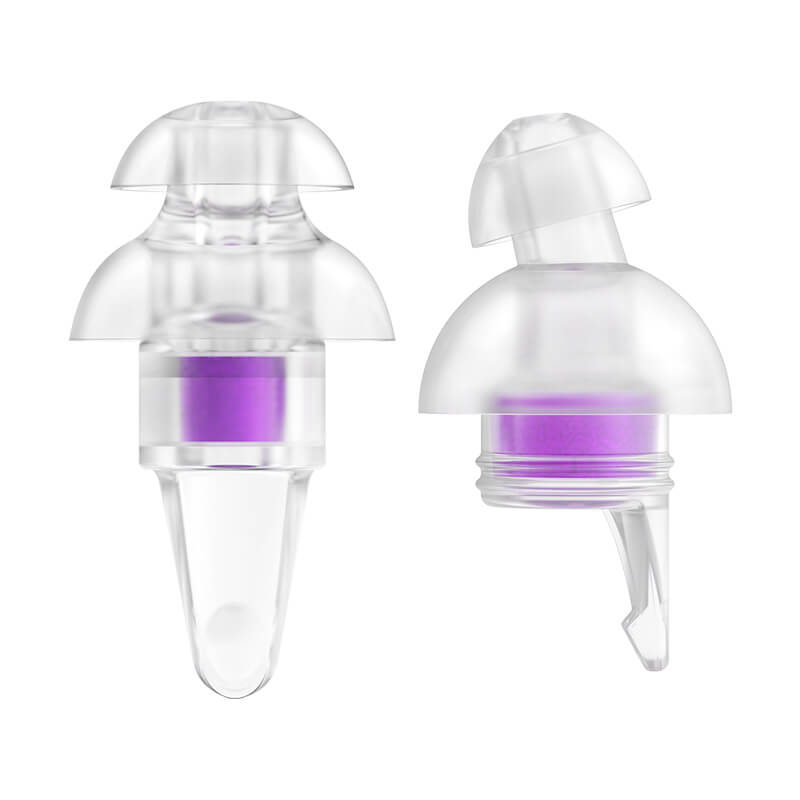Getting a good night's sleep is essential for our overall health and well-being. However, many people struggle with falling asleep or staying asleep due to various factors, including noise disturbances. This is where sleeping ear plugs come in, offering a solution to block out unwanted sounds and promote restful nights. In this article, we will delve into the science behind sleeping ear plugs and explore how they can help you achieve a peaceful sleep.

The Importance of Quality Sleep
Before we dive into the science behind sleeping ear plugs, let's first understand why quality sleep is crucial for our health. Sleep plays a vital role in our physical and mental well-being. It allows our bodies to repair and rejuvenate, enhances cognitive function, and strengthens our immune system. Lack of sleep or poor sleep quality can lead to a range of health issues, including increased stress levels, decreased productivity, and even chronic conditions like heart disease and obesity.
How Do Sleeping Ear Plugs Work?
Discovering the science behind sleeping ear plugs involves understanding how they work to block out noise. Sleeping ear plugs are typically made of soft, pliable materials such as foam or silicone. When inserted into the ear canal, they create a seal that prevents sound waves from entering. This seal acts as a barrier, reducing the intensity of external noises and allowing you to sleep undisturbed.
Additionally, sleeping ear plugs can also help to reduce the impact of low-frequency sounds, such as traffic or snoring, which are often more difficult to block out. By dampening these sounds, ear plugs create a quieter environment, promoting a deeper and more restful sleep.
The Science Behind Noise Reduction Rating (NRR)
When choosing sleeping ear plugs, you may come across the term "Noise Reduction Rating" or NRR. The NRR is a measure of how effectively ear plugs can reduce noise levels. It is typically expressed in decibels (dB) and provides an indication of the maximum amount of noise reduction that can be achieved with a particular pair of ear plugs.
It's important to note that the NRR is not a guarantee of complete silence. Instead, it serves as a guide to help you select ear plugs that are suitable for your specific needs. Factors such as the fit of the ear plugs and the frequency of the noise can also influence the overall effectiveness of noise reduction.
Choosing the Right Sleeping Ear Plugs
When it comes to selecting the right sleeping ear plugs, there are a few factors to consider. Firstly, comfort is key. Look for ear plugs that are soft, hypoallergenic, and designed to fit snugly in your ears without causing discomfort. It's also important to choose ear plugs with an appropriate NRR for your sleeping environment. If you're a light sleeper or live in a noisy area, you may benefit from ear plugs with a higher NRR.
Furthermore, it's worth exploring different types of ear plugs to find the one that suits you best. Foam ear plugs, for example, are known for their excellent noise-blocking capabilities and affordability. Silicone ear plugs, on the other hand, are reusable and offer a more customized fit. By experimenting with different options, you can discover the perfect pair of sleeping ear plugs that provide optimal noise reduction and comfort.
Conclusion
Discovering the science behind sleeping ear plugs reveals how they can contribute to restful nights and improved sleep quality. By blocking out unwanted noise and creating a quieter sleep environment, ear plugs help promote deep and uninterrupted sleep. Remember to choose ear plugs that are comfortable, have an appropriate NRR, and suit your individual preferences. With the right pair of sleeping ear plugs, you can enjoy the benefits of a peaceful night's sleep and wake up feeling refreshed and rejuvenated.



